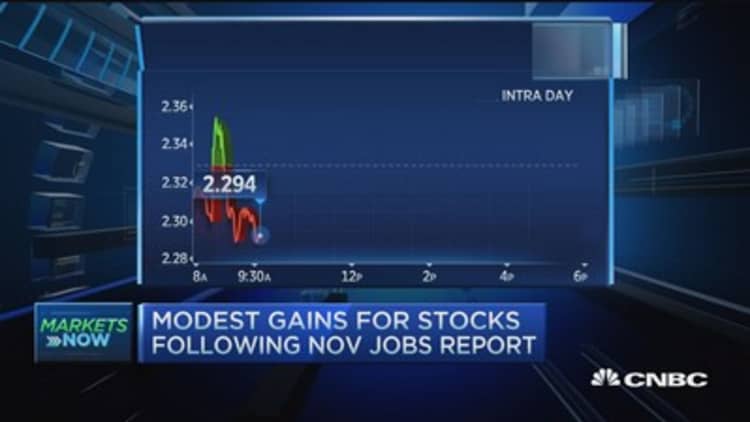


Oil prices settled lower on Friday after OPEC announced it had agreed to roll over its policy of maintaining crude production in order to retain market share.
Also on Friday, oilfield services firm Baker Hughes reported its weekly count of U.S. oil rigs fell by 10 to a total of 545, compared with 1,030 a year ago. This is the third consecutive week of declines.
Internationally traded Brent was down 80 cents, or 1.8 percent, at $43.05 at 2:33 p.m. EDT, having fallen earlier this week to a low of $42.43, within cents of August's 6-½ year trough.
U.S. crude settled 2.7 percent lower at $39.97 a barrel.
OPEC had been widely expected to stick with its year-old policy, despite pressure from poorer members of the cartel for a cut in output to prop up the price of oil.
During OPEC's press conference, OPEC President Emmanuel Ibe Kachikwu said the producer group was taking a "wait and watch" approach. The cartel will meet again in June 2, 2016 to reassess policy.
He said OPEC members would keep current actual production levels steady. The target heading into the meeting was 30 million barrels per day.
OPEC sources had earlier told Reuters it had agreed to raise its output ceiling to 31.5 million bpd at its meeting in Vienna, in what appeared to be an effective acknowledgement of existing production. But the official statement did not mention a target production level.
Again Capital founding partner John Kilduff told CNBC that forecasts of OPEC production levels put output above the current ceiling.
OPEC supply rose in November to 31.77 million barrels per day (bpd) from 31.64 million in October, according to a Reuters survey, based on shipping data and information from sources at oil companies, OPEC and consultants.
In an interview with CNBC following the press conference, Kachikwu said OPEC could potentially meet before June if developments in price or production levels warrant it.
"There are lots of triggers that will call an early meeting way before June if we find a need to," he said.
He also said he was not disappointed that non-OPEC producers, including Russia, refused to join OPEC in cutting production, adding that the group has not explored that possibility enough.
"We're going to work on that before now and June with much more energy and vigor. I think ultimately we will come to something," he said.
In the last few weeks, investors have run up big bearish bets, or short positions, betting on a fall in the price of crude oil.
The dollar rose, which would ordinarily depress oil prices as this strength can encourage non-U.S. investors in crude to sell their holdings in exchange for a higher profit in their own currency.
But Thursday's 2-percent slide in the greenback, triggered by a surging euro, left the dollar near its weakest in a month.
On the demand side, China is likely to double its strategic crude oil purchases next year to take advantage of a more than a 60 percent fall in oil prices since June 2014.
Beijing will add 70 million-90 million barrels of crude to storage tanks in 2016 to build up its strategic petroleum reserves (SPR), according to most respondents in a poll of five analysts and data collected by Reuters analysts.
—CNBC's Tom DiChristopher contributed to this report.







